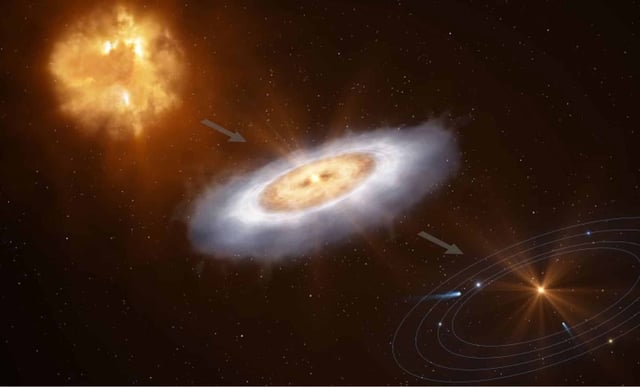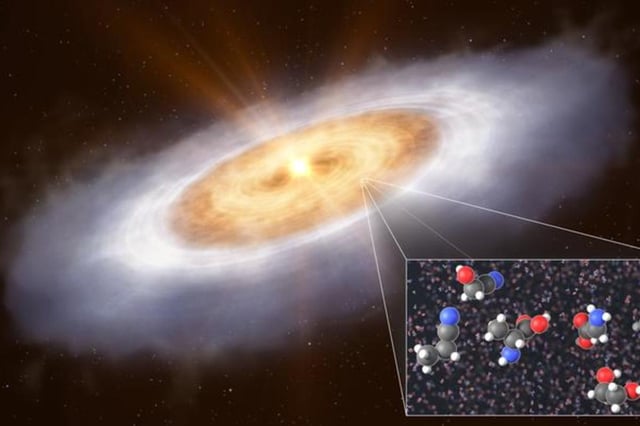Overview
- Using the ALMA observatory in Chile’s Atacama Desert, astronomers led by Abubakar Fadul identified 17 complex organics in the V883 Orionis disk following a powerful stellar outburst that released icy molecules into the gas phase.
- Among the molecules detected were glycolonitrile, a precursor to amino acids and the nucleobase adenine, and ethylene glycol, which is linked to advanced organic reactions relevant to RNA and DNA formation.
- The findings, published in The Astrophysical Journal Letters, support an astrochemical inheritance model in which protoplanetary disks retain and synthesize complex molecules from interstellar clouds.
- These observations challenge the “reset scenario” by showing that star formation does not destroy existing molecular complexity and may facilitate ongoing chemical enrichment in planet-forming regions.
- Co-author Kamber Schwarz cautions that higher-resolution data are needed to confirm tentative detections and may reveal even more prebiotic compounds in the young star’s disk.

